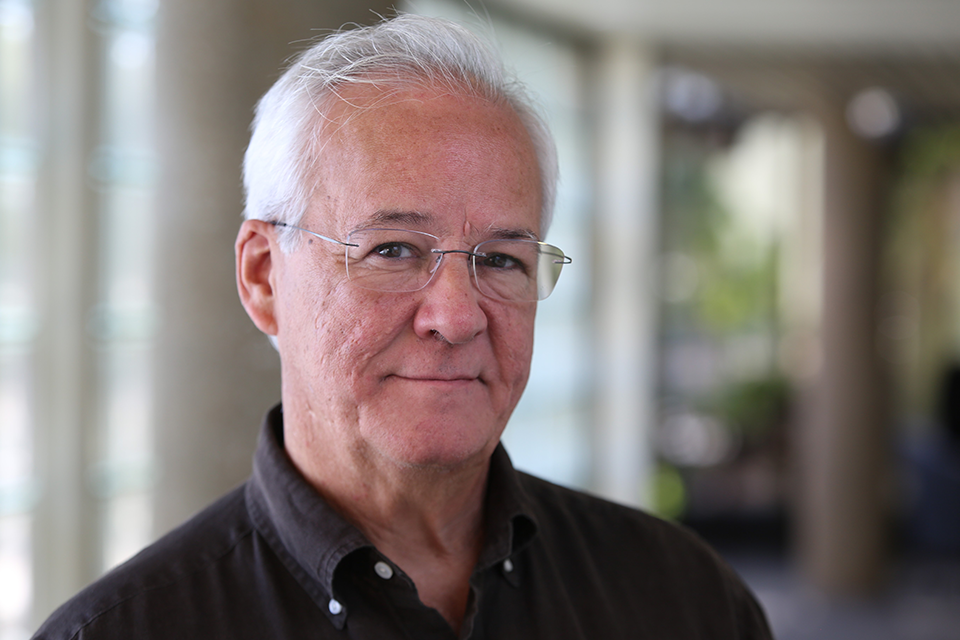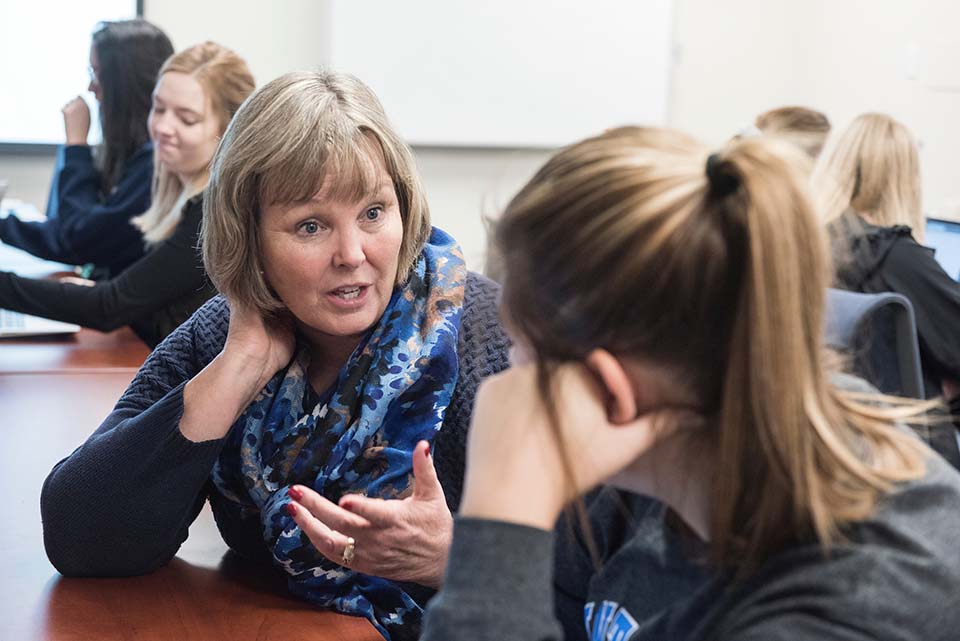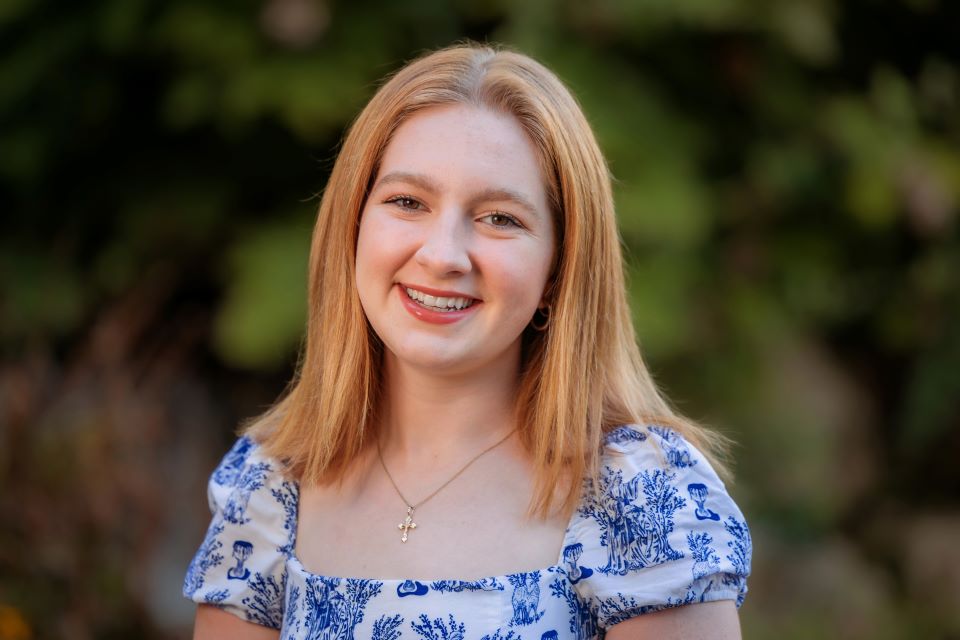Saint Louis University Professor Named 2024 NIH Climate and Health Scholar
Saint Louis University professor Ricardo Wray, Ph.D., was named a 2024 Climate and Health Scholar by the National Institutes of Health, beginning a year-long research fellowship to combat climate change and its public health consequences.

“I'm excited the NCI picked me to be a 2024 Climate and Health Scholar because, of all of the institutes at the NIH, they are the one that has invested the most in health communication as a topic and as a discipline," said Ricardo Wray, Ph.D., professor of behavioral science and health equity at Saint Louis University. Photo provided by Benjamen Loewnau.
Wray is one of seven established scientists with expertise in climate and health selected to be a part of the second cohort of the NIH’s Climate Change and Health Initiative. This class of NIH Climate and Health Scholars will become part of the cross-cutting NIH effort to reduce health threats from climate change across the lifespan and build health resilience in individuals, communities, and nations around the world, especially among those at highest risk.
The diverse group of scientists went through a competitive selection process and will begin work with NIH staff this month until September of 2024.
Wray, a professor of behavioral science and health equity in SLU’s College for Public Health and Social Justice, was selected to work with the National Cancer Institute with a focus on health communication.
“I'm excited the NCI picked me because, of all of the institutes at the NIH, they are the one that has invested the most in health communication as a topic and as a discipline,” Wray said. “I made an argument that communication is important to fund because it brings an interdisciplinary perspective and a wide range of inquiries and methods that can effectively contribute to understanding, informing and achieving behavioral, social and systemic change that are central to understanding and mitigating links between climate change and health. I was heartened that they agreed with my argument and that they want to pursue that line of reasoning.”
While each scholar will work with a different institute within NIH, they will also work with staff across NIH to share knowledge and help build capacity for conducting climate and health-related research.
Wray has vast experience working in public health, and has been an instructor with SLU for more than 20 years. His recent foray into environmental health was spurred through his work with Mosquito Alert STL, an app that tracks various mosquito species in the greater St. Louis region and works with local health departments to prevent diseases such as West Nile virus while also educating the public on best practices to avoid these pests.
“My primary training and area of work has been in health communication,” Wray said. “I've done research in a lot of different areas of public health in terms of health communications, but in the last year and a half, I’ve started to pivot to environmental health. Mosquito Alert STL was a great entry point because it's very concrete. It's local. We have great community partners. There are really interesting outcomes to think about that are related to ecological environmental sensibilities, which are aligned with climate communication outcomes. The climate and health scholar program just fell into my lap; I'd been pursuing this line of work and now this opportunity allows me to continue to do just that.”
Throughout his career, Wray’s work has allowed him to engage in applied public health communication teaching, research, and practice through designing, implementing, and assessing communication programs in the United States, Latin America, Africa, and Asia. Funded by NIH-NCI, the Centers for Disease Control, and others, he has conducted interdisciplinary and mixed-methods research to advance community-engaged and social-justice-focused scholarship to address social determinants and health equity and promote reproductive health; emergency preparedness; and prevention of violence, cancer, and chronic and infectious diseases.
During the course of the next year, Wray will provide consultation to the NCI as they continue to identify health communication research needs aimed at preventing and addressing climate-change-related illnesses and health emergencies.
“I'm excited to be working with NCI because I think they will be open to a lot of different practices and approaches,” Wray said. ‘For example, cancer outcomes related to climate and health can be linked to increased exposure to pollutants with climate change. The increase of wildfires, weather disasters, things like that. There are concerns about disruption of care for cancer patients. It’s all very exciting and I’m ready to get to work with some of the brightest minds in all these fields for the next year.”
Being relatively new to the world of environmental health, Wray is ready to get to work and start making contributions. Thankfully, he already sees similarities between environmental health and health communications, and is excited to continue to blend the two.
“Climate change and climate communication, as we say in public health, is really about shifting the curve,” Wray said. “And if there's any place where we need to shift the curve, it’s in climate change. We have to remain hopeful that we can make a difference. So hopefully my work as a Climate and Health Scholar can help leverage and contribute to that hope and can make a difference.”
Latest Newslink
- Kathryn Mitchell Pierce, Ph.D.: 1955-2025Kathryn Mitchell Pierce, Ph.D., associate professor of educational studies, died Wednesday, Dec. 10, 2025. She was 70 years old. Pierce joined Saint Louis University in 2015 as an assistant professor in the School of Education. Initially a literacy specialist in the undergraduate program, she eventually taught and mentored across all levels at the School of Education. She became an associate professor in 2022.
- Saint Louis University Student Speaks About Leadership and Disability at Ignatian Family Teach-In for JusticeSaint Louis University senior Grace LoPiccolo shared her personal leadership journey at the 2025 Ignatian Family Teach-In for Justice. The event, held annually in Washington, D.C., is the nation’s largest Catholic social justice advocacy day.
- SLU Research Shows Surge in Alcohol-Related Liver Disease Driving ‘Deaths of Despair’Researchers at Saint Louis University School of Medicine say deaths from alcohol-related liver disease have surged in recent years, and the increase is hitting people without a college degree the hardest. While nearly every demographic group is seeing higher death rates—including those with college degrees—the gap between economically disadvantaged groups and more affluent ones is growing, according to new research.
- Saint Louis University Joins Multi-Disciplinary Research Team to Enhance Stress Resilience in SorghumSaint Louis University is part of a multi-disciplinary team, led by the Donald Danforth Plant Science Center, to deepen the understanding of sorghum, a versatile bioenergy crop, and its response to environmental challenges.The U.S. Department of Energy (DOE) Biological and Environmental Research (BER) program supports the three-year $2.5 million project for Genomics-Enabled Understanding and Advancing Knowledge on Plant Gene Function. Saint Louis University will receive $437,039 for its portion of the study.
- SLU Graduates Celebrated at Midyear CommencementSaint Louis University celebrated its Midyear Commencement on Saturday, Dec. 13, inside Chaifetz Arena. More than 1,900 guests watched as 600-plus SLU students walked across the stage and left as graduates.
- Why Do Raccoons Cross the Road? SLU, St. Louis Zoo Research Shows They Don'tA new study led by researchers from Saint Louis University, the Saint Louis Zoo, and partner organizations set out to understand how raccoons use space in one of the nation's largest urban parks.













